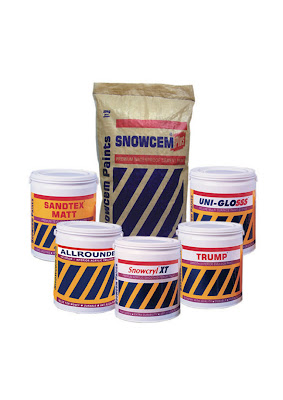
Before you use any primer, properly clean the surface.
- New wood - If your wood isn't seriously stained, use a high-quality latex primer or an oil-based primer. If you have wood that is stained or you are painting redwood or cedar, use a stain-blocking primer.
- Painted wood - If your paint is in very good condition, a primer may not be needed. However, if you have exposed wood, chalking or chipped paint, use an oil-based primer. Before you prime, scrape away as much chipped paint as possible and wash off any chalk. (Just because you are using a primer doesn't mean you get to skip surface preparation.)
- Weathered wood - Use a high-quality latex or oil-based primer. Sand and scrape away as much paint as possible. When you start to see new wood fibers, start priming.
- Masonry block - Fill a fresh surface with block filler before painting. If repainting, scrape off any loose or peeling paint and cover with latex paint. Use a block filler only if the paint has been completely scraped off.
- Aluminum and galvanized steel - If your surface is rusty, remove the rust and apply a latex or oil-based, corrosion-resistant primer. If the surface is new and rust-free, you can apply a high-quality latex paint and no primer.
- Drywall - Use a latex primer. Don't use an oil-based primer unless you are putting up wallpaper or covering a stain. Oil-based primers raise the grain of the drywall and make the finish look uneven.
- Stains - Crayons, water, smoke and grease can bleed through the topcoat. Prime these areas with a stain-blocking or stain-killing primer. Oil-based stain killers work the best on water stains and for spot priming. Latex stain-blocking primers work better on large areas and hold up better on exterior surfaces. Pigmented shellac primer works well to block smoke and soot damage as well as to block animal urine smells.
- Shiny surfaces - Bonding primers will stick to glass, tile, formica and previously painted surfaces. Use bonding primers for interior surfaces only. They tend to crack when exposed to the elements because they aren't flexible.






No comments:
Post a Comment